Blog: CU Boulder experiments arrive at International Space Station
NASA and SpaceX’s CRS-14 mission with the Dragon spacecraft carrying three different experiments involving the University of Colorado Boulder's Bioserve Space Technologies have successfully arrived at the International Space Station.
- The first, called Micro 11, is a project in partnership with the University of Kansas centering on reproductive biology. It will study the effects of microgravity on sperm function.
- The second experiment will study metabolic activity in real-time to measure the effects of microgravity on the impact of five theraputic compounds.
- The final project will demonstrate the feasibility of growing protein crystals aboard ISS. The effort will give scientists the ability to optimize growth in microgravity instead of losing time waiting for samples to return to Earth and then launch them again.
The launch at Cape Canaveral was attended by Bioserve Research Associate Luis Zea and Sam Piper, a CU Boulder aerospace undergraduate senior who played a major role in hardware development for Micro 11.
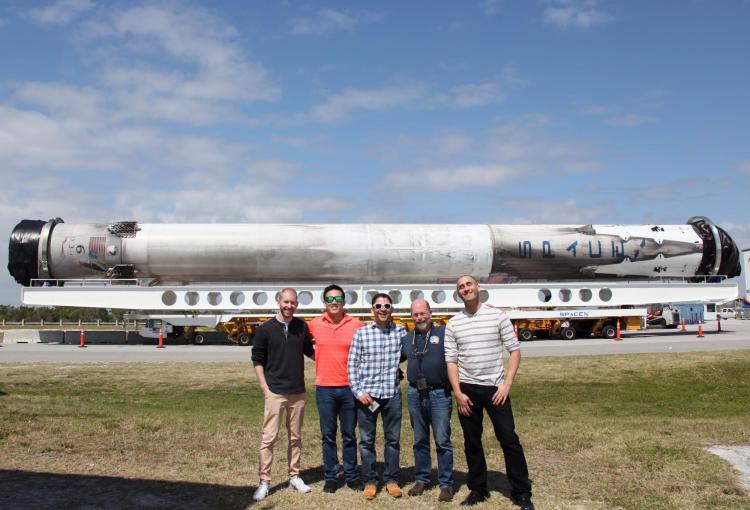
Members of the joint Bioserve and University of Kansas science and implementation team at Kennedy Space Center with a space-proven Falcon 9 rocket on the background. From left to right: Eric Yarns (KU), Kevin Ngo (KU), Luis Zea (CU Boulder), Dr. Joe Tash (KU), and Sam Piper (CU Boulder)
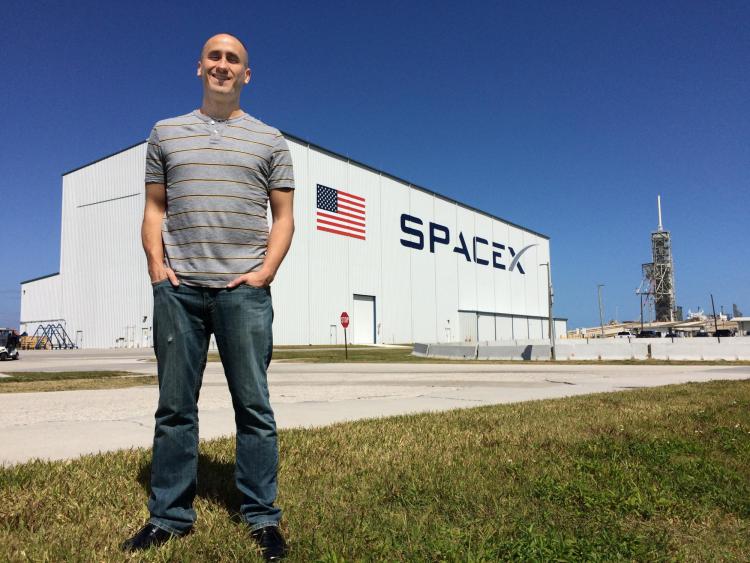
Sam Piper, aerospace engineering student at CU spearheaded the hardware development effort for the Micro-11 experiment. Launchpad 39A is in the background (this is one of the two launchpads used during the Apollo and Space Shuttle programs and is now leased by SpaceX).
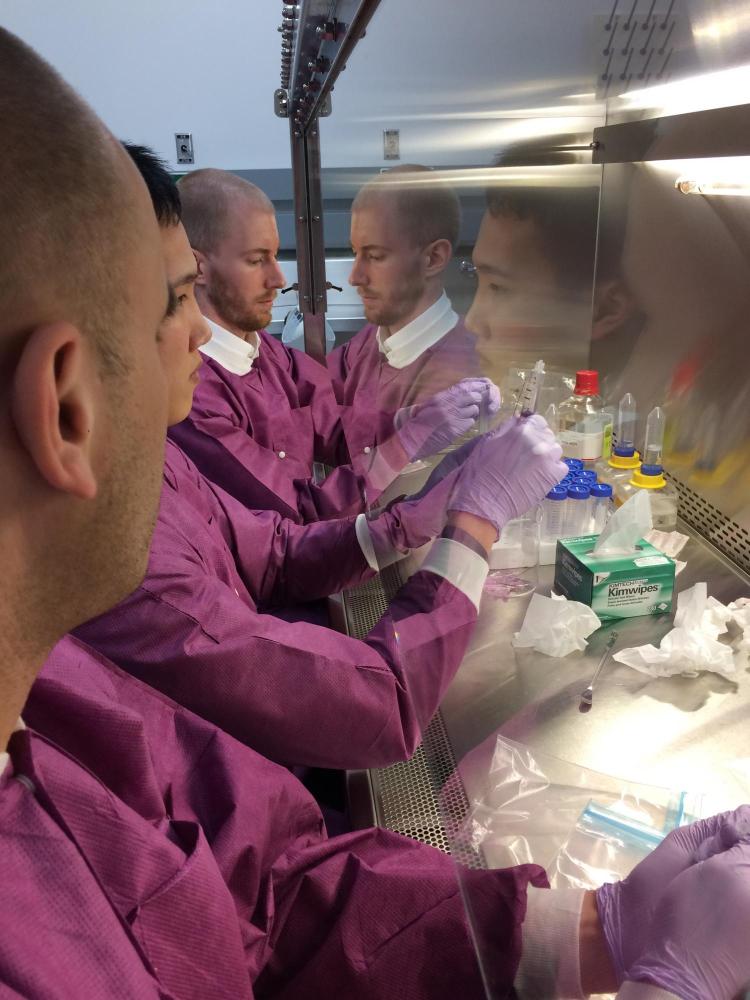
Scientists and engineers from CU Boulder and KU working together during the final preparation of the flight samples. From left to right: Sam Piper (CU), Kevin Ngo (KU), Eric Yarns (KU).
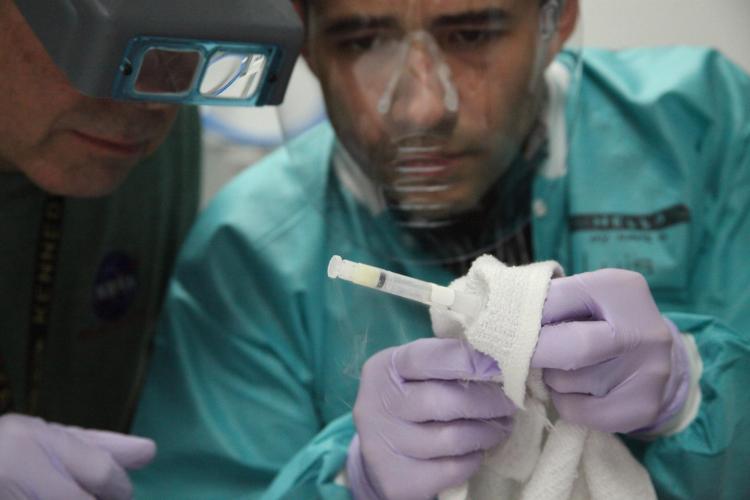
Mark Rupert (left), BioServe’s Associate Director, who led the Safety aspects for the Micro 11 experiment, and Luis Zea (right), the payload’s integration project manager, do a final inspection of a syringe before its launch to the International Space Station, at Kennedy Space Center.
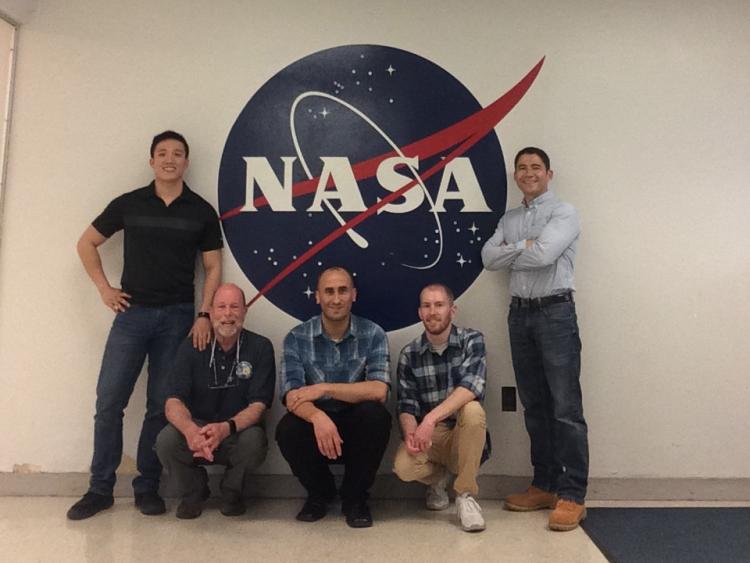
The Micro 11 science and implementation teams at NASA’s Kennedy Space Center. From left to right: Kevin Ngo (KU), Dr. Joe Tash (KU), Sam Piper (CU Boulder), Eric Yarns (KU), and Luis Zea (CU Boulder)
Luis Zea is a research associate at Bioserve Space Technologies. He earned his PhD in aerospace from CU Boulder in 2015.
Jeff Zehnder is a content and communications specialist in the College of Engineering and Applied Science at CU Boulder.

